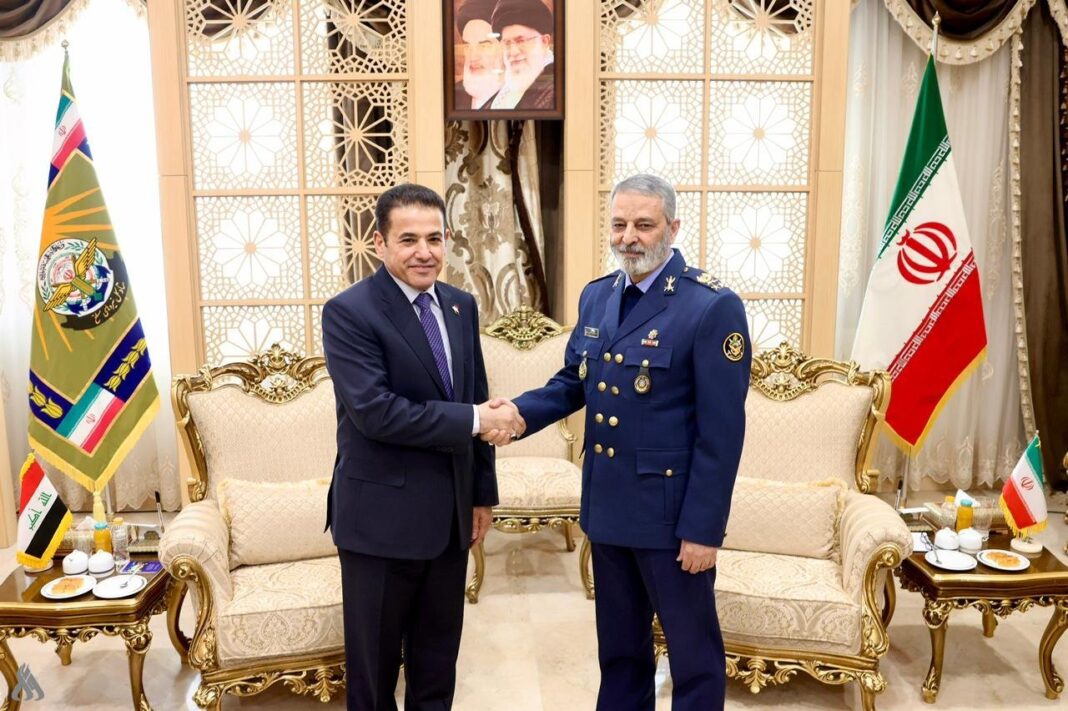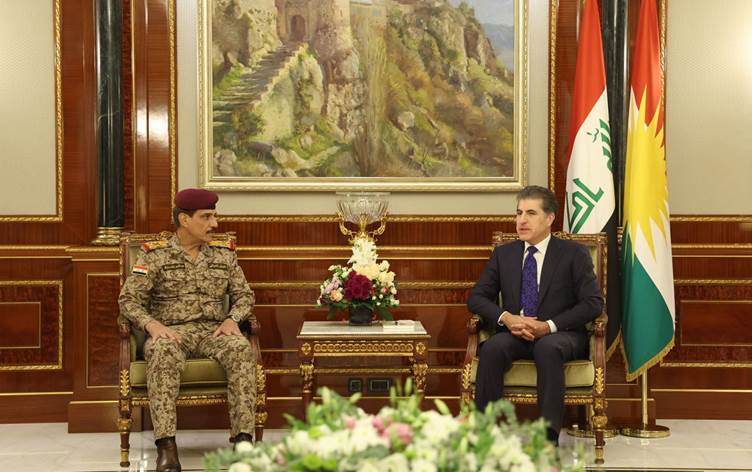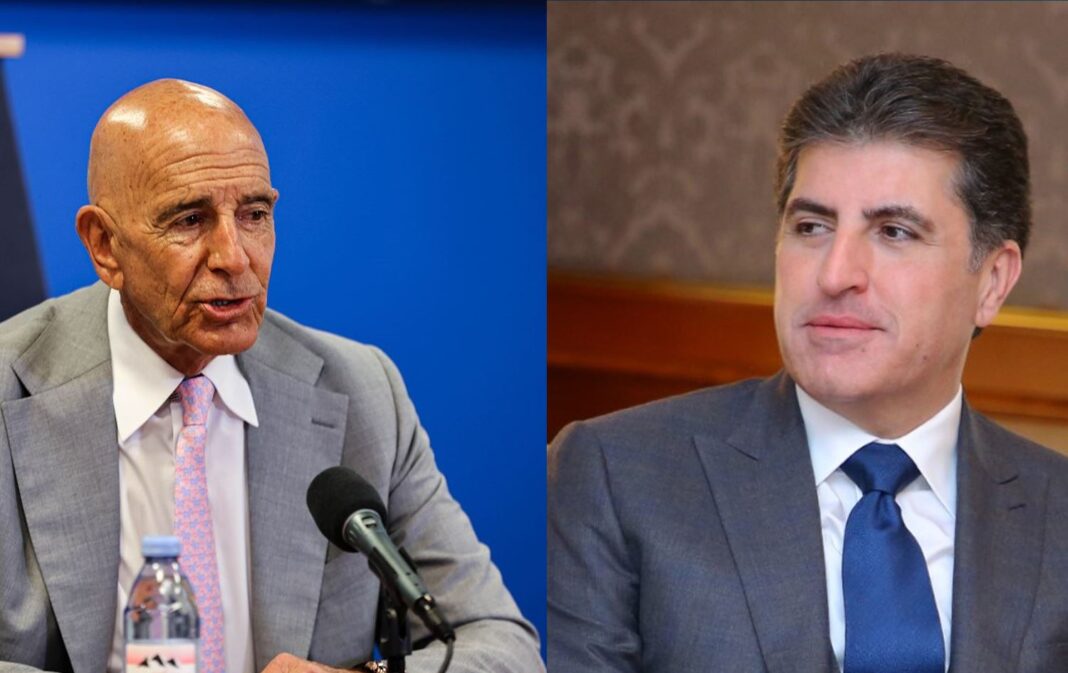Regional security cooperation was the central theme of a high-level meeting in Tehran on Monday. Iraqi National Security Advisor Qasim Al-Araji and Iranian Supreme National Security Council Secretary Ali Larijani held a joint press conference. The two officials discussed strategies to strengthen security ties and prevent further instability in the region.
Al-Araji stressed Iraq’s firm commitment to regional stability. He made it clear that Iraq opposes any actions that could escalate tensions in the Middle East. Furthermore, he confirmed that Iraq has filed an official complaint with the United Nations Security Council. This complaint addresses the recent 12-day conflict between Iran and Israel, referred to by Al-Araji as the “Zionist entity.”
In addition, Al-Araji reaffirmed Baghdad’s position against allowing Iraqi airspace for foreign military operations. He said Iraq strictly opposes the use of its skies to launch attacks against neighboring countries. During the recent conflict, both Iranian and Israeli forces allegedly crossed into Iraqi airspace.
Iraq, which does not recognize Israel, enforces laws that criminalize any form of normalization with it. Consequently, Al-Araji reiterated that Iraq remains committed to rejecting any normalization efforts. He emphasized that Iraq continues to support the Palestinian cause and rejects violations of ceasefire agreements.
Speaking about international diplomacy, Al-Araji also opposed sanctions. Instead, he called for peaceful dialogue and mutual respect between nations. He stated that diplomatic efforts should guide all conflict resolution in the region.
Larijani echoed Al-Araji’s remarks, highlighting the need for deeper regional security cooperation. He warned that economic partnerships cannot thrive without solid security foundations. “To keep our economies strong, we must ensure our borders and interests are protected,” he said.
Moreover, Larijani praised Iraq’s position during the recent conflict. He acknowledged Iraq’s regret over the use of its airspace and thanked Iraqi leaders for standing firm. He said that Iraq’s actions reflect a responsible approach to maintaining peace and sovereignty.
Al-Araji also discussed Iraq’s participation in the Sharm el-Sheikh summit. He said the region continues to suffer from repeated attacks on Gaza and urged respect for ceasefire agreements. He expressed concern over civilian suffering and called for international accountability.
The two leaders pledged to maintain open communication and build stronger defense frameworks. Their meeting marked a renewed push for regional security cooperation in a volatile environment. With heightened tensions across the Middle East, both sides agreed that dialogue, not war, must lead the way forward.
Ultimately, the conference reflected a shared desire for stability, sovereignty, and long-term regional security cooperation.



